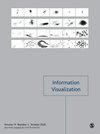Interact: A visual what-if analysis tool for virtual product design
IF 1.8
4区 计算机科学
Q3 COMPUTER SCIENCE, SOFTWARE ENGINEERING
引用次数: 0
Abstract
Virtual prototyping is increasingly used by businesses to streamline operations, cut costs, and enhance daily operations. This often includes a variety of modeling techniques among which, complex, black-box models. The path from model development to utilization in applied contexts is yet long. Domain experts need to be convinced of the validity of the models and to trust their predictions. To be used in the field, model capabilities need to be affordable, that is, allow rapid and interactive scenario building, even for non-experts. Complex relations governed by statistical interactions must be unveiled for users to understand unexpected predictions. We propose Interact, a model-agnostic, visual what-if tool for regression problems, supporting (1) the visualization of statistical interactions between features, (2) the creation of interactive what-if scenarios using predictive models, (3) the evaluation of model quality and building trust, and (4) the externalization of knowledge through model explainability. While the approach applies in various industrial contexts, we validate the application purpose and design with a detailed case study and a qualitative user study with engineers in the tire industry. By unraveling statistical interactions between features, the INTERACT tool proves to be useful to increase the transparency of black-box machine learning models. We also reflect on lessons learned concerning the development of visual what-if tools for virtual product development and beyond.Interact:用于虚拟产品设计的可视化假设分析工具
企业越来越多地使用虚拟原型来简化操作、降低成本和提高日常运营水平。这通常包括各种建模技术,其中包括复杂的黑盒模型。从模型开发到应用的过程还很漫长。领域专家需要确信模型的有效性并信任其预测。要在实地使用,模型的功能必须是可负担得起的,也就是说,即使是非专家也能快速、交互式地构建情景。必须揭示受统计相互作用支配的复杂关系,以便用户理解意想不到的预测结果。我们提出的 Interact 是一种与模型无关的可视化假设回归问题工具,支持(1)特征间统计交互的可视化,(2)使用预测模型创建交互式假设情景,(3)评估模型质量和建立信任,以及(4)通过模型的可解释性实现知识的外部化。该方法适用于各种工业环境,我们通过详细的案例研究和对轮胎行业工程师的定性用户研究,验证了应用目的和设计。通过揭示特征之间的统计交互作用,INTERACT 工具被证明有助于提高黑盒机器学习模型的透明度。我们还反思了在虚拟产品开发及其他方面开发可视化假设工具的经验教训。
本文章由计算机程序翻译,如有差异,请以英文原文为准。
求助全文
约1分钟内获得全文
求助全文
来源期刊

Information Visualization
COMPUTER SCIENCE, SOFTWARE ENGINEERING-
CiteScore
5.40
自引率
0.00%
发文量
16
审稿时长
>12 weeks
期刊介绍:
Information Visualization is essential reading for researchers and practitioners of information visualization and is of interest to computer scientists and data analysts working on related specialisms. This journal is an international, peer-reviewed journal publishing articles on fundamental research and applications of information visualization. The journal acts as a dedicated forum for the theories, methodologies, techniques and evaluations of information visualization and its applications.
The journal is a core vehicle for developing a generic research agenda for the field by identifying and developing the unique and significant aspects of information visualization. Emphasis is placed on interdisciplinary material and on the close connection between theory and practice.
This journal is a member of the Committee on Publication Ethics (COPE).
 求助内容:
求助内容: 应助结果提醒方式:
应助结果提醒方式:


